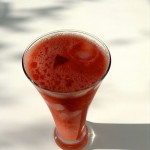Osteoporosis or low bone density is a fairly common condition. Osteoporosis literally means ‘porous bones’. The clinical definition is ‘a condition where there is less normal bone than expected for a woman’s age, with an increased risk of fracture’.
Osteoporosis isn’t painful and most women don’t realise that they have it until they fracture a bone after a relatively minor accident or stress. One visible sign of osteoporosis is the characteristic bending forward position that develops in older people.
The bone mass of both men and women reduces naturally as they get older but women are more likely to develop osteoporosis. In women in the perimenopause stage, the risk of developing the condition is partly due to the reduction in the levels of oestrogen but there are other important factors involved. Other risk factors include:
- Genetics. If you have a mother or father with osteoporosis you may be at higher risk of developing the condition.
- Early menopause (before age 45) or if menstrual periods are absent for more than six months due to over-exercising or over-dieting.
- Some medications; for example long term use of steroids such as oral glucocorticoids used in the maintenance and regulation of immune and circulatory functions.
- Some medical conditions; such as rheumatoid arthritis, Crohn’s disease and chronic obstructive pulmonary disorder (COPD), overactive thyroid gland (hyperthyroidism) or an overactive parathyroid
- heavy drinking and smoking
- lack of regular exercise
If you are at high risk for osteoporosis talk to your doctor who may refer you for a bone density scan which is known as a DEXA scan. This is a painless procedure that measures your bone mineral density and compares it to the bone density of a healthy young adult and someone who is the same age and sex as you. If the results indicate osteoporosis, your doctor may prescribe drugs (bisphosphonates, strontium ranelate, calcitonin, or HRT)
Actions you can take to keep your bones healthy:
- Regular resistance exercise – for example weight training at the gym, using resistance bands, or doing household and gardening tasks that involve lifting.
- Eat a more alkaline diet – more alkaline fruit (watermelon, mangoes, pears, grapes, passion fruit), vegetables, eggs, and fish
- Limit intake of caffeine, sugar, alcohol, and fizzy drinks
- Reduce refined bran in your diet. Eat bran as part of the whole grain for example oats or brown rice.
- Food supplements – calcium and vitamin D are important for bone health. Vitamin B is also recommended (Glenville, 2011).
- If you smoke – stop!
For more advice see National Osteoporosis Society website http://www.nos.org.uk/page.aspx?pid=183&srcid=183

